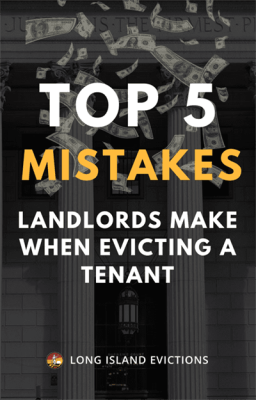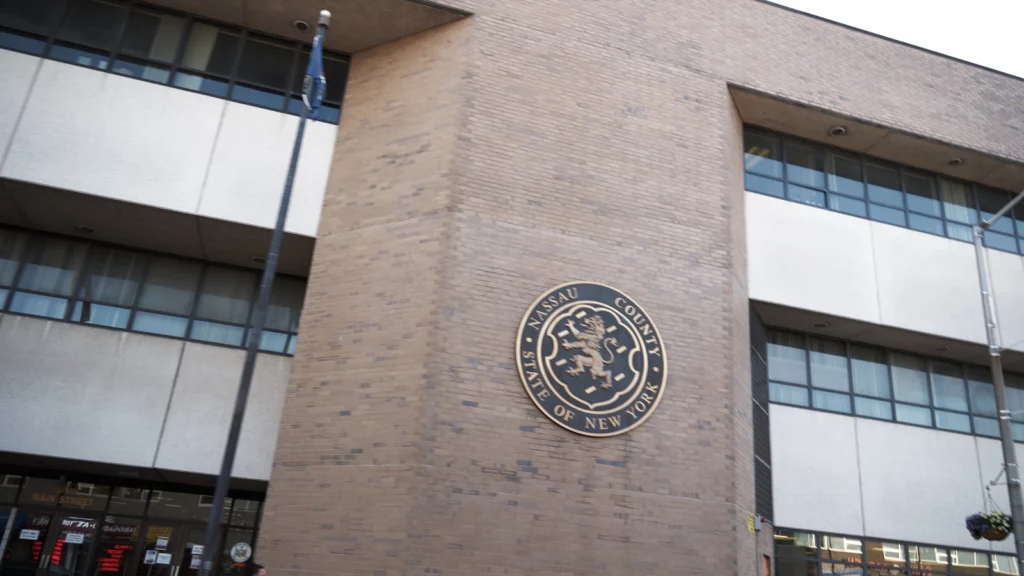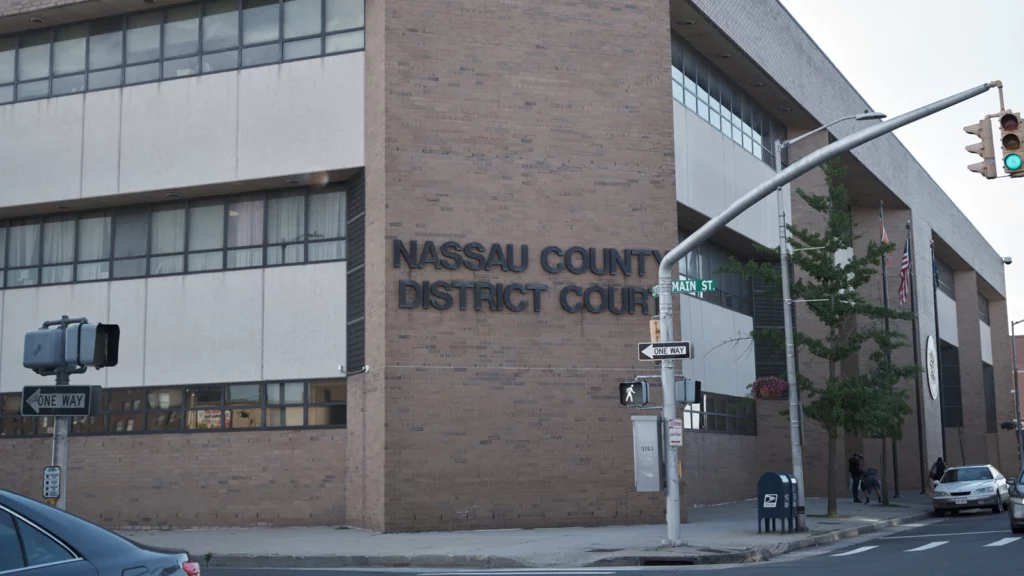How To Evict a Tenant for
Nonpayment of Rent
Nassau County, NY – Suffolk County, NY
Evicting a Tenant for Nonpayment of Rent
There are generally two types of eviction proceedings available to landlords: a nonpayment proceeding and a holdover proceeding. A nonpayment proceeding is an eviction proceeding where the landlord seeks to evict the tenant based on the tenant’s failure to pay rent. A holdover eviction is brought to remove every other type of person who needs to be removed from possession of real property, regardless of whether they come up with the rent or not.
If your tenant stopped paying the rent, you most likely will want to bring a nonpayment proceeding to evict your tenant. But in some scenarios, a holdover eviction is also an available option, and the landlord must choose which one is best for their situation.
If a Tenant Stops Paying Rent, Why Would You Bring a Holdover Proceeding Instead of a Nonpayment Proceeding?
A nonpayment proceeding is generally a much faster way to evict your tenant compared to a holdover proceeding. However, there is one caveat. Since the basis of a nonpayment eviction is nonpayment of rent, if your tenant shows up with the unpaid rent at any time during the eviction proceeding, your petition will be dismissed and you will not be able to evict your tenant (at least, not based on nonpayment grounds).
So, if you have a situation where your tenant is violent, or you just want them to leave, you may be better off bringing a holdover proceeding as opposed to a nonpayment proceeding to evict your tenant, even if rent is behind. If you’re not sure which type of eviction proceeding is best for you and your situation, give us a call and we can help you to decide.
You can easily see how choosing the wrong type of eviction proceeding could turn into an expensive cycle where the landlord files an eviction proceeding for nonpayment of rent, but then the tenant shows up and pays the rent owed before or during the court date, and the landlord’s petition gets dismissed. So the landlord is stuck paying all of the court costs and fees, and is left out of pocket all of that money.
Often, once a tenant stops paying rent, the landlord-tenant relationship has broken down sufficiently enough where landlords just want them gone, no matter what. In this situation, sometimes a holdover proceeding is best.
In a holdover proceeding, even if the tenant shows up to court with all the back rent owed, the landlord can still accept the money AND evict the tenant.
However, as mentioned, holdover proceedings take slightly longer than nonpayment proceedings. So if you are confident your tenant will not be showing up with the rent, or you are willing to continue to let them live there if they do show up with the rent, then a nonpayment proceeding may be the right option for you.
Prerequisites for FIling an Eviction Proceeding for Nonpayment of Rent
Before you can file an eviction proceeding for nonpayment of rent, you must meet certain requirements, such as:
- You must be the owner of the property, and
- the person you are seeking to evict must be a tenant in possession of the property.
- If the property is a one-family house, there must be no more than two units.
Next, you must know what type of tenancy you are dealing with.
- Is it a tenancy pursuant to a written rental agreement, or is the rental agreement oral in nature, such as a tenancy at will or by sufferance?
- Or is it a month-to-month tenancy because a written lease agreement has expired?
If there is a written agreement, you must ensure that all notice requirements under the agreement have been satisfied before starting the action.
Call or Text
Have Questions? Speak with Us For Free.
We offer free consultations via phone, text or chat. Don't wonder about what your rights are or what your next move is. Call and find out.
📞 (631) 888-6989💬 Text Us NowOther Caveats for Initiating an Eviction Based Upon Nonpayment of Rent:
- The money the landlord seeks must be actual back rent or additional rent only. It cannot be money for repairs or damages added to the rent.
- The rent owed must have accrued in the past 6 months only. You cannot collect back rent from more the prior six months period of time. This is known as the doctrine of stale rent, or more properly, “laches,” and it is like a statute of limitations on lawsuits for rent. So don’t wait before taking action on a nonpaying tenant.
TYPES OF
HEMPSTEAD EVICTIONS:
THE COURTHOUSE FOR
HEMPSTEAD EVICTIONS:
RELATED ARTICLES:
The Proecdure to Evict a Nonpaying Tenant
in Nassau County & Suffolk County, NY
Eviction Process Step 1: Serving a Notice to Quit for Nonpayment of Rent
Every type of eviction proceeding requires what is called a “predicate notice” as a precursor to bringing the action in court. That notice is what puts the landlord in the proper position to start the action. Without the correct notice being properly served, the landlord is not properly situated to bring an eviction action in court and the case will have to be dismissed by the judge.
In a nonpayment action, two notices must be served. First, the tenant must be given a notice in writing by certified mail and first-class mail, informing the tenant that the rent is more than five days late and telling the tenant the total amount of rent they owe. This is a simple notice that makes no demand. It is often referred to as a 5-day notice.
The landlord must also serve a 14-day notice to quit on the tenant before bringing a non-payment proceeding. The 14-day notice essentially demands that the tenant pay all of the back rent in full within 14 days, or move out. It lets the tenant know that if he does neither, the landlord will evict him. At the expiration of the 14-day period of time, if the tenant still has not paid all rent due and owing or moved out, the landlord may file a non-payment proceeding.
It is important to note that the 14-day notice must be served in the same manner as a petition. This means that the landlord cannot serve the notice personally. It must be served by a non-party like a process server upon the tenant at the apartment or rental unit. If you fail to meet the exacting service requirements for serving the 14-day notice, your petition will be dismissed by the court. Strict compliance with the rules, language and service requirements are necessary to ensure your eviction proceeding is not dismissed. Your landlord tenant attorney should take care of all of this for you.
Eviction Process Step 2: Filing a Petition for an Eviction for Nonpayment of Rent
Once the time on your notice to quit for nonpayment of rent has expired, you must prepare a notice of petition and a petition to initiate your nonpayment proceeding and file it with the correct court. You must also prepare the additional required statutory notices to be served with your petition.
You must choose a date for the petition to be heard in evictions court, which must fall on a date that your venue hears landlord-tenant eviction proceedings, and said date must be at least 17 days in the future.
The Filing Procedure for Evicting a Tenant for Not Paying Rent
The original notice of petition and non-payment petition and one complete copy must be brought to the evictions court for your venue and filed with the Clerk of the Court. The fee for this is $45.00, and it is called an “index fee.” The Clerk will return your copy of the papers to you, time-stamped, with a receipt for your payment of the index fee.
Eviction Process Step 3: Service of Process of the Petition
A process server over the age of 18 years old who lives in the State of New York, who is not a party to the action must serve the notice to quit for nonpayment of rent on the tenant at the apartment or rental unit. The papers must be served no more than 17 days before the date the petition is to be heard, but no less than 10 days before your landlord-tenant court date. Then an affidavit of service must then be prepared by the person who served the papers, and must be filed with the Clerk of the Court within the time required by law.
Eviction Process Step 4: Appearing in Landlord Tenant Court
Your eviction lawyer will appear before a District Court Judge in the venue where your eviction proceeding is initiated. If your tenant does not appear, your lawyer will request a default judgment for all the relief you seek in your petition. The request will only be granted if the petition and notices were properly drafted and served with no defects, which is why it’s important to ensure you have someone drafting your notices and petitions who knows what they’re doing.
If your tenant appears for the nonpayment proceeding on the court date, then the judge will require both sides to step out of the courtroom and discuss the matter to see if the case can be settled. If both the landlord and the tenant can come to an agreement to resolve the nonpayment issue – for example, if the tenant agrees to pay back all of the rent due by a certain date – then the agreement must be put into writing in what’s called a stipulation of settlement. This stipulation of settlement is drafted and then filed with the court, and your matter is resolved.
If the tenants fail to abide by the terms of your stipulation of settlement, then your landlord tenant attorney should have included language in the stipulation giving you an immediate remedy so you don’t have to return to court. This is another reason why it’s so important to hire an attorney that regularly practices landlord tenant law. There are many little details like using the right stipulation language that are often missed by lawyers who only dabble in landlord tenant law.
Request for Adjournments
At any time your tenant can request an adjournment. Usually a party requests an adjournment if they cannot appear or if they need more time. The leniency with the requests for adjournments depends on the venue and the judge. Some are more strict than others. The local eviction courts usually grant at least one adjournment for either side when asked.
If the issues surrounding the nonpayment of rent cannot be settled, the judge will schedule a hearing (a trial) on the matter. Again depending on the venue, sometimes we can request a trial the same day if both parties are ready. In busier venues like Nassau County District Court in Hempstead, the judges almost never allow a trial to go forward on the same day, and you will most always receive an adjourned trial date for a later time.
Eviction Process Step 5: Trial for a Nonpayment Proceeding
At the nonpayment proceeding trial, you as the landlord or property manager will be required to testify and state your case to the Court. Your landlord-tenant lawyer should prepare you for testifying at trial well ahead of time. This is another reason why the landlord tenant lawyer you choose makes such a huge difference.
As the landlord-petitioner, you will get to testify first. If you do not state all of the facts necessary to establish the nonpayment of rent, your petition will be dismissed, and you will have to start again.
Next, it will be the tenant’s turn to present his or her defenses to your eviction for nonpayment of rent. If the tenant has legal defenses, or appears in court with the back rent owed in full, your case may be dismissed. But if you state your case adequately, and the tenant has no legal defenses, then you can expect to win a monetary judgment for the back rent owed, and a judgment of possession and a warrant of eviction that you can use to have the Sheriff of Nassau County or the Sheriff of Suffolk County remove the tenant from the apartment and garnish their wages.
Conclusion
Eviction proceedings for nonpayment of rent can be a stressful and time-consuming process. It is important to understand the local laws and procedures, as well as your rights and responsibilities as a landlord or property manager. Knowing the steps of the eviction process for nonpayment of rent can help you prepare in advance and prevent any misunderstandings or delays that may occur during the course of the proceedings.
It is also important to remember that because of the complexities of landlord-tenant law and evictions for nonpayment proceedings in general, you should always be represented by an attorney who is well-versed in landlord-tenant law.
Summary of the timeline to evict a tenant in Nassau County & Suffolk County
The timeline for an eviction has many variables. But as a general guide, Suffolk County District Courts usually take 30-45 days to resolve an eviction; the Nassau County District Court usually takes 45-60 days; and the Town Justice Courts on the East End usually take about 30 days. Then add at least two weeks to that total for unforeseen issues.
Timeframes may vary depending on circumstances, and most evictions will be resolved in less time than that, but to know the maximum time will place the landlord in a better position to make plans for the property.
A Sample Timeline of a
Non-Payment Proceeding:
Step 1
Drafting & serving required notices
The required predicate notices must be drafted and sent to a process server for service. Service could take a week or more.
Step 2
Wait for notice expiration
After service is completed, you must wait for the expiration of the time period on the notice to proceed. It could be a 10-day notice, a 14-day notice, a 30-day notice, a 60-day notice, or a 90-day notice, depending on your situation. This is the time that the tenant has to pack up and leave.
Step 3
Asses status
After the time on the notice expires, if the tenant still has not moved out, you can now proceed with a court proceeding to have them legally removed.
Step 4
Draft & File Petition & Receive Court Date
Upon immediate conclusion of the notice period, a notice of petition and petition will be filed with the court to begin the eviction proceeding. The court assigns a court date. As soon as the attorney knows the date, the client will be notified and given additional instructions, like what to do on the court date and what to expect.
Step 5
Serve Tenants with the Petition & Notices
The tenant must be served again with the petition and required legal notices, and will be notified to appear in court on the appearance date.
Step 6
Appear in Court
On the court date, all parties will appear in court. If the tenant fails to appear, the landlord’s attorney may ask the court for a judgment of possession and a warrant of eviction by default. If all parties are present, they will be expected to have a conference in the courthouse to discuss the possibility of settlement.
If the case can be settled, the parties will draft a stipulation of settlement, which will describe what they have agreed to. If the judge approves the settlement, the case will be over.
Step 7
Trial
If the parties cannot come to settlement terms, then the judge will schedule a trial on a new date. On the day of trial, both sides will present their case. If your tenant loses, the court will issue a judgment of possession and a warrant of eviction, which is what the Sheriff will need to physically remove your tenant.
Step 8
Have Your Tenants Physically Removed
You can now take your judgment and warrant to your county sheriff, and they will physically remove your tenant and their belongings from the apartment, and return possession of the premises back to you.
- Get the free guide

Is this you?
want our free guide?
Subscribe to our newsletter & make sure you’re not making the same mistakes.
Learn More About Nonpayment Proceedings:
What’s the Penalty for Renting an Illegal Apartment?
Renting an illegal apartment can lead to serious consequences, but it may...
Read MoreHow Long Does it Take to Evict a Tenant in Nassau County or Suffolk County, NY?
The Evictions Timeframe Varies Depending on on Several Factors There is no...
Read MoreBuilding Trust and Bringing Results for Over 15 Years
Our lawyers have helped thousands of Long Island landlords find piece of mind and evict their problem tenants quickly and efficiently.
"They were very pleasant and prompt, and always returned phone calls in a timely manner. The lawyer was very helpful and patient with us.”









